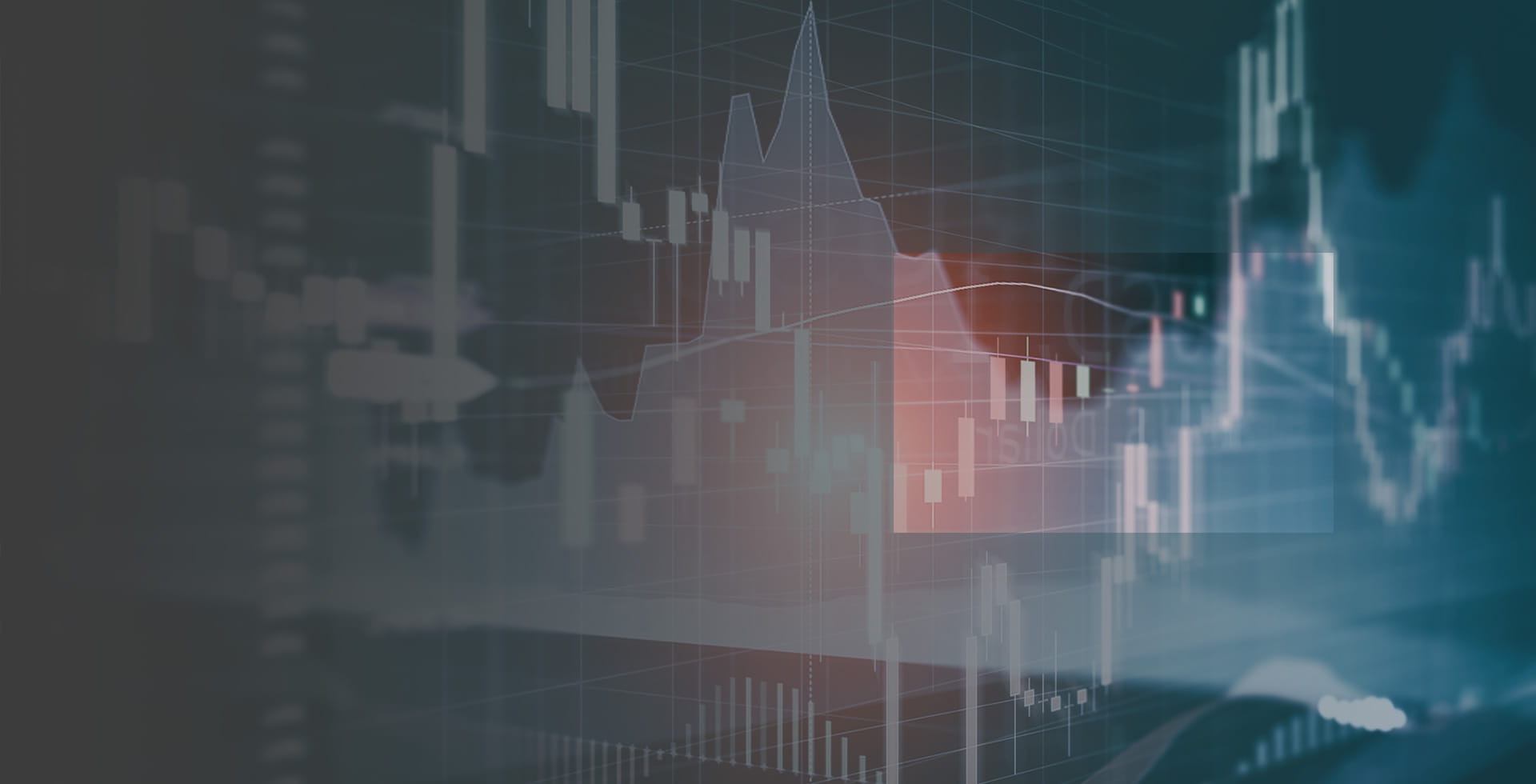
Summary
The financial markets are signalling that the situation in the Middle East won’t get out of hand, but US-Iran friction could continue for some time. The defence industry and oil and gas-related sectors could remain well-supported, but overall we believe investors should be cautious yet patient. Look to higher-quality stocks with lower correlations to the broader market and “hunt for income” if headline volatility is a risk you wish to avoid.
Key takeaways
|
We have been keeping a watchful eye on the Middle East for some time, mindful that any flare-up in tensions could roil global markets. That spark may have come in recent weeks, with the US and Iran edging towards military conflict. The reaction of financial markets suggests that the situation won’t get out of hand, but even so, the face-off could still continue for some time. We think investors should prepare to ride out the initial volatility that ensues whenever there are new headlines, and be ready to reassess positions when signs of de-escalation occur.
What happened?
The US and Iran have escalated tensions in recent weeks. While it’s reasonable to expect a prolonged confrontation between the two states, we believe that neither wants to start a full-blown war. Moreover, Iran has been weakened by continuing economic sanctions and may not be capable of major military action. But the situation remains unpredictable and the risk of further escalation between the US and Iran – and turbulence across the region – remains significant.
What does it mean for the markets?
While we are concerned that the Middle East has become a lot more complex in the last few months, the financial markets have been resilient and seem to be assuming the situation will not become uncontrollable. A pattern is starting to emerge in response to each escalation between Iran and the US:
- An initial sell-off on news of strikes or strong rhetoric from leaders..
- A bounce-back once traders decide that the latest escalation is unlikely to affect the overall market narrative.
The resilience we’ve seen seems to be partly due to the fact that many investors are already defensively positioned, having used 2019’s strong performance to reduce equity exposure and take profits.
Overall, the global reliance on Iranian oil has lessened since the 1970s, making the scope for economic damage less ominous. Nonetheless, there has been some reaction in certain markets, most notably in flight-to-safety asset classes. Gold has returned to higher levels, the US dollar has strengthened, US Treasury yields have declined, and the aerospace and defence sectors have rallied since the flare-up in tensions.
What does it mean for oil?
So far, oil-price increases have been relatively modest: Brent crude prices spiked up about 4% on Monday before falling again on news of de-escalation. This was well below the 15% spike we saw in September after the Saudi Arabia oil-facility strike – and, notably, prices moved downward again fairly quickly after that episode.
Further turbulence in the Middle East could create a risk premium for oil and cause disruption in the oil supply, pushing up oil prices and acting as a headwind to future global growth. Higher oil prices would also hurt most Asian economies which, with the exception of Malaysia, are net importers of oil.
Our consensus view for 2020 is that the oil market is well supplied, with global demand weakish, but there is falling investment in Mexico, Brazil, the Middle East and the UK, offset only by Norway. US shale production looks unlikely to grow much more into 2021, so we see a high risk that more supply issues will surface. This could push prices up somewhat.
What should investors do?
In an environment of widespread political, structural and cyclical headwinds on the one hand, and lingering (though receding) support from monetary and fiscal policy on the other, we expect a continuation of the anaemic below-potential global growth trend in 2020. This rapid deterioration in the Middle East will certainly not help global growth, and it may have raised the near-term risk profile in Asian markets, despite a sanguine macro backdrop.
In the face of uncertainty, we urge caution and patience. We suggest investors are ready to re- assess positions once signs of de-escalation in the US-Iran tensions can be seen. In the meantime, defence sectors, as well as oil and gas-related sectors, could do well, but investors’ priority should be to maintain diversification, looking at higher-quality, less-volatile stocks with lower correlations to the broader market.
1053629
Outlook & commentary
20 years into the 21st century, here’s what investors need to know

Summary
In the last two decades, the global economy experienced major transformations. Here are some of the top stories from the start of the 21st century – and what investors can learn from them.
Key takeaways
|
-
Investing involves risk. The value of an investment and the income from it will fluctuate and investors may not get back the principal invested. Past performance is not indicative of future performance. This is a marketing communication. It is for informational purposes only. This document does not constitute investment advice or a recommendation to buy, sell or hold any security and shall not be deemed an offer to sell or a solicitation of an offer to buy any security. The views and opinions expressed herein, which are subject to change without notice, are those of the issuer or its affiliated companies at the time of publication. Certain data used are derived from various sources believed to be reliable, but the accuracy or completeness of the data is not guaranteed and no liability is assumed for any direct or consequential losses arising from their use. The duplication, publication, extraction or transmission of the contents, irrespective of the form, is not permitted.
This material has not been reviewed by any regulatory authorities. In mainland China, it is for Qualified Domestic Institutional Investors scheme pursuant to applicable rules and regulations and is for information purpose only. This document does not constitute a public offer by virtue of Act Number 26.831 of the Argentine Republic and General Resolution No. 622/2013 of the NSC. This communication's sole purpose is to inform and does not under any circumstance constitute promotion or publicity of Allianz Global Investors products and/or services in Colombia or to Colombian residents pursuant to part 4 of Decree 2555 of 2010. This communication does not in any way aim to directly or indirectly initiate the purchase of a product or the provision of a service offered by Allianz Global Investors. Via reception of his document, each resident in Colombia acknowledges and accepts to have contacted Allianz Global Investors via their own initiative and that the communication under no circumstances does not arise from any promotional or marketing activities carried out by Allianz Global Investors. Colombian residents accept that accessing any type of social network page of Allianz Global Investors is done under their own responsibility and initiative and are aware that they may access specific information on the products and services of Allianz Global Investors. This communication is strictly private and confidential and may not be reproduced. This communication does not constitute a public offer of securities in Colombia pursuant to the public offer regulation set forth in Decree 2555 of 2010. This communication and the information provided herein should not be considered a solicitation or an offer by Allianz Global Investors or its affiliates to provide any financial products in Brazil, Panama, Peru, and Uruguay. In Australia, this material is presented by Allianz Global Investors Asia Pacific Limited (“AllianzGI AP”) and is intended for the use of investment consultants and other institutional/professional investors only, and is not directed to the public or individual retail investors. AllianzGI AP is not licensed to provide financial services to retail clients in Australia. AllianzGI AP is exempt from the requirement to hold an Australian Foreign Financial Service License under the Corporations Act 2001 (Cth) pursuant to ASIC Class Order (CO 03/1103) with respect to the provision of financial services to wholesale clients only. AllianzGI AP is licensed and regulated by Hong Kong Securities and Futures Commission under Hong Kong laws, which differ from Australian laws.
This document is being distributed by the following Allianz Global Investors companies: Allianz Global Investors GmbH, an investment company in Germany, authorized by the German Bundesanstalt für Finanzdienstleistungsaufsicht (BaFin); Allianz Global Investors (Schweiz) AG; in HK, by Allianz Global Investors Asia Pacific Ltd., licensed by the Hong Kong Securities and Futures Commission; in Singapore, by Allianz Global Investors Singapore Ltd., regulated by the Monetary Authority of Singapore [Company Registration No. 199907169Z]; in Japan, by Allianz Global Investors Japan Co., Ltd., registered in Japan as a Financial Instruments Business Operator [Registered No. The Director of Kanto Local Finance Bureau (Financial Instruments Business Operator), No. 424], Member of Japan Investment Advisers Association, the Investment Trust Association, Japan and Type II Financial Instruments Firms Association; in Taiwan, by Allianz Global Investors Taiwan Ltd., licensed by Financial Supervisory Commission in Taiwan; and in Indonesia, by PT. Allianz Global Investors Asset Management Indonesia licensed by Indonesia Financial Services Authority (OJK).






